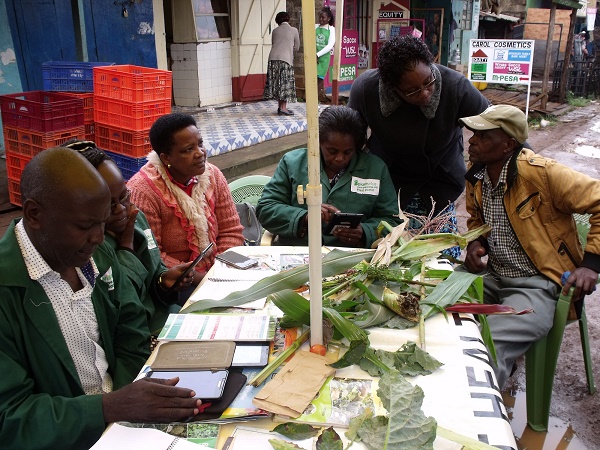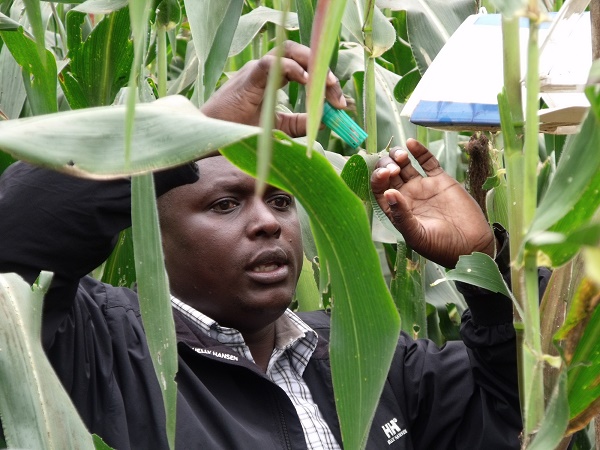CABI is leading a consortium, funded by the UK Space Agency’s International Partnership Programme (IPP), developing a Pest Risk Information Service (PRISE), which uses state-of-the-art technology to help inform farmers in sub-Saharan Africa of pest outbreaks that could devastate their crops and livelihoods.
The service was launched at a Plantwise plant clinic in Manyatta in Kenya’s Eastern Province.
Plant clinics are a meeting place where local plant health extension officers, known as plant doctors, help farmers struggling with plant pests and diseases. They provide diagnoses and management advice for any problem and any crop.
PRISE builds upon the UK Department for International Development (DFID)-funded Plantwise programme which works globally to help farmers lose less of what they grow to plant health problems.
Other donors of Plantwise include the Swiss Agency for Development and Cooperation (SDC); the European Commission DG DEVCO (EuropeAid); the Ministry of Foreign Affairs Netherlands (DGIS); Irish Aid; the International Fund for Agricultural Development (IFAD); the Australian Centre for International Agricultural Research (ACIAR); and the Ministry of Agriculture of the People’s Republic of China.
Datasets obtained from a combination of the plant-pest lifecycle, earth observation and satellite positioning, are being used to spearhead the fight against pests that devastate an estimated 40% of the world’s crops. The project will help farmers fight back against potentially disastrous pests such as the Fall Armyworm.
The project consortium includes UK partners from Assimila, Kings College London, the Centre for Environmental Data Analysis. The technology being deployed better places CABI’s Plantwise plant clinics to give timely alerts and advice to farmers, in person and by tablet or smartphone so they can respond more efficiently to the risks posed to their crops.
The PRISE project, whose other partners include the Kenya Agricultural & Livestock Research Organization (KALRO) and the Ministry of Agriculture, Livestock and Fisheries, Kenya, is expected to be rolled out to five further sub-Sarahan African countries in due course. The project was launched in Zambia in December and will be launched in Ghana later this month.
Cambria Finegold, Global Director, Knowledge Management, said, “CABI’s recent evidence note on Fall Armyworm, funded by the UK Department for International Development (DFID), predicts that this species’ effect on maize losses in just 12 African countries could range from 8.3 to 20.6 million tonnes per year – let alone the risks posed by other pests.”
“It is vital therefore that we use the very latest in technology and work in partnership to bring the best insights on pest population behaviour right to the farmer’s door.”
Ray Fielding, Head of the International Partnership Programme at the UK Space Agency, said: “We are delighted to be working with CABI to help transform the lives of farmers in sub-Saharan Africa. The £6.3 million of funding from the UK Space Agency will see CABI provide pest risk predictions in time for farmers to take vital preventive action and thus increase resilience to pest outbreaks. Innovation is essential to provide new solutions to the problem of pest outbreaks, and this project combines novel EO technology, satellite positioning, plant health modelling, and on-the-ground real-time observations to deliver a science-based service for sub-Saharan Africa.”








